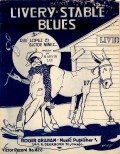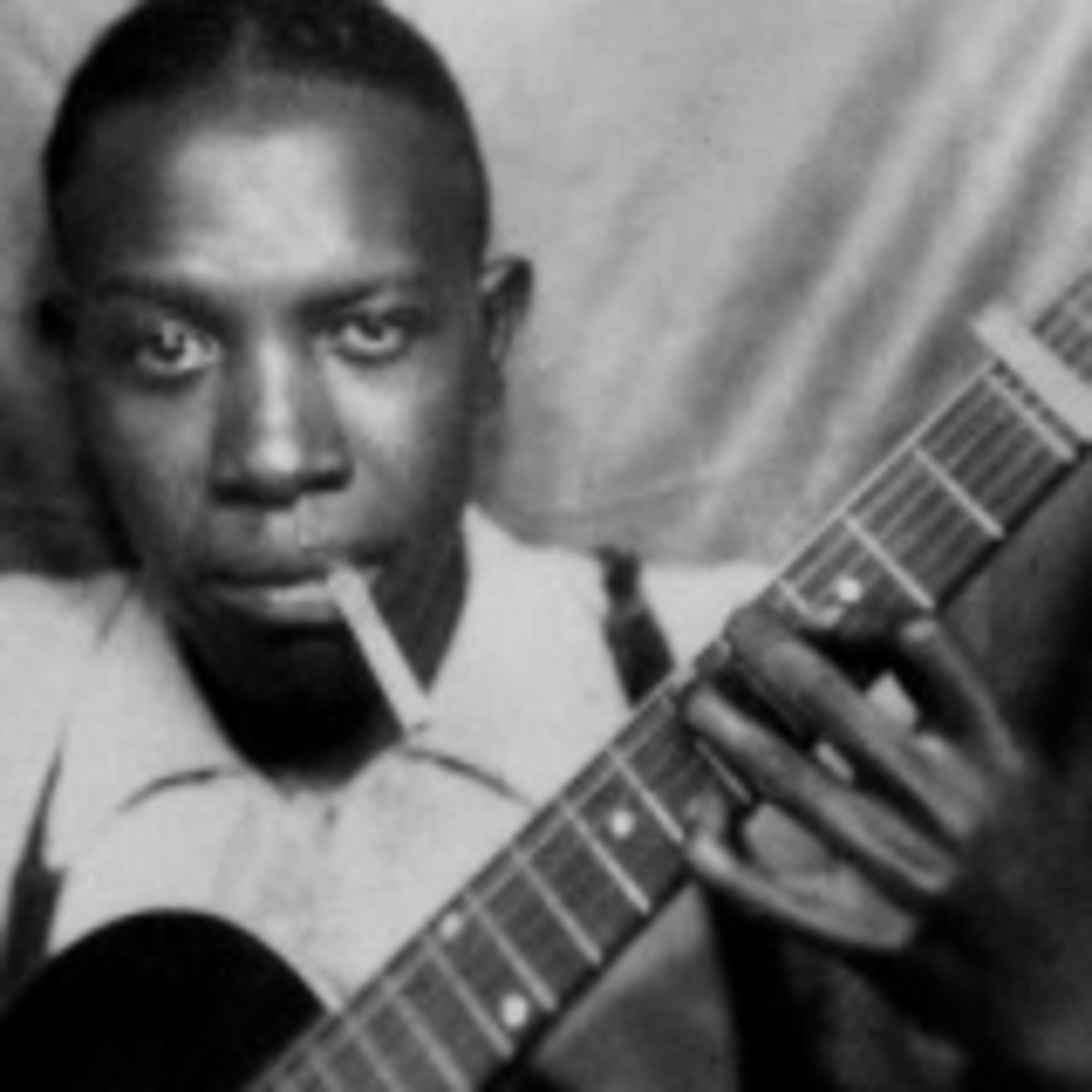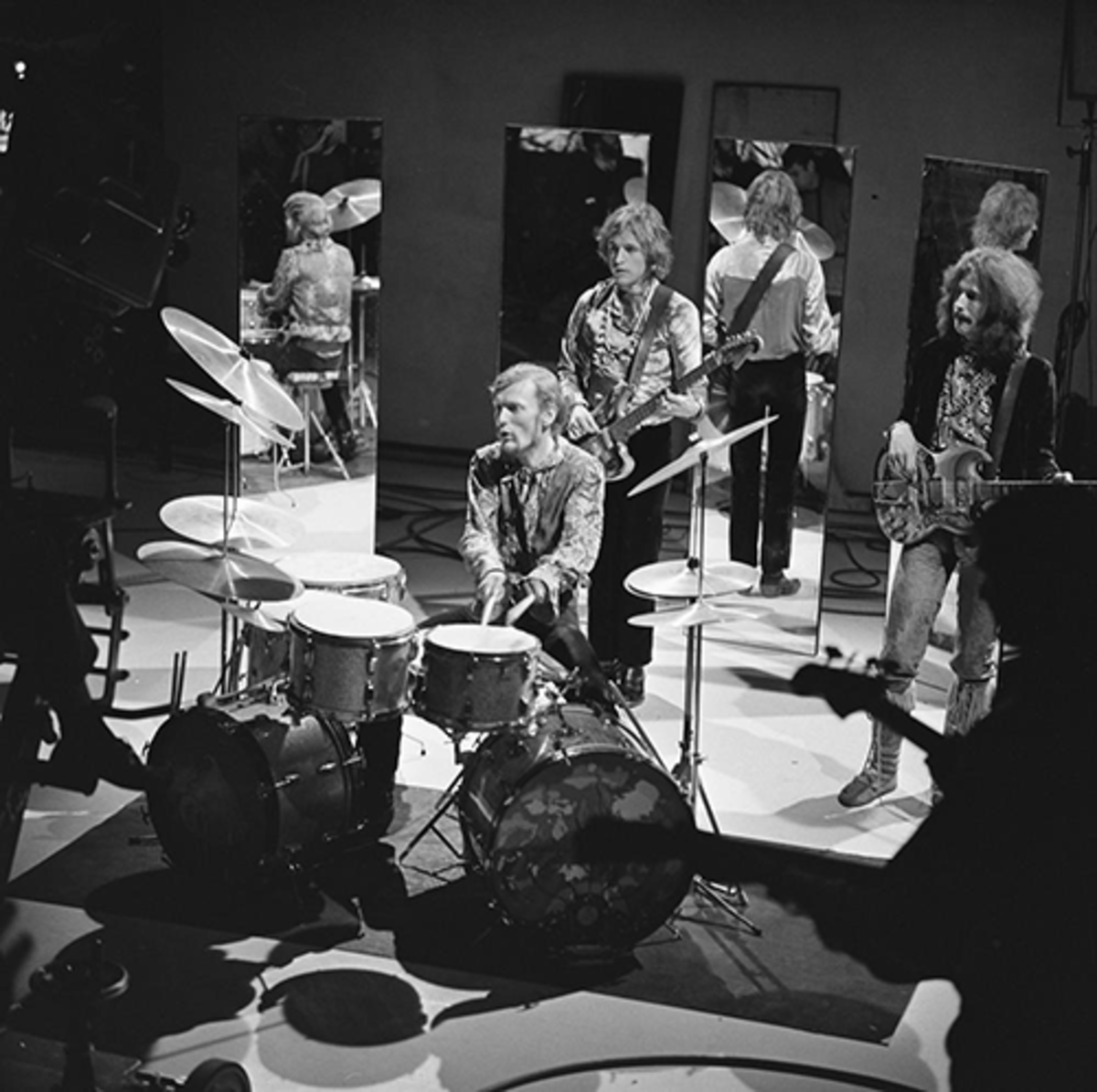The Beauty Of The Blues
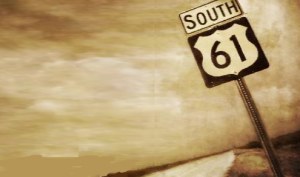
The fabled Highway 61 was the path that legendary Delta Bluesmen traveled taking an authentic American art form, Blues music, north through Memphis and on to Chicago. I say "an American art form" but should clarify that Blues is one of only two recognized genuine art forms original to America (the other being the comic book). As the great melting pot of the modern world, America enjoys and is shaped by the art, culture, and influences of nearly every nation on Earth . . . however, when various styles and forms (and with music, even various instruments) from different lands blend together and begin to alter the style and form of any particular culture's art into something not indigenous to the land the came from, when they create something new and authentically original, then you have a new art form indigenous to the land where those styles and forms met. This is the story of American Blues music.
The Black slaves of the American South adapted their African rhythms and a call-and-response format into work songs and field hollers while the Irish & Scottish immigrants brought their storytelling and dance jigs with them to their new home. The Irish & Scots took the banjo from the African-Americans and the (now) former slaves of the post Civil War era took a sense of melody from the Irish & Scots. The Irish & Scotts went on to develop what is now Country music and the African-Americans went on to create Blues . . . which gave the world Jazz, Dixieland, Swing, Rock & Roll, and Rock music.
What is astounding is that you can just about zero-in geographically on where Blues comes from. Because the guitar was a cheap and portable instrument, it became the Blues troubadour's instrument of choice, and by the late 1800s Blues players could be found throughout the South, Texas, and eventually Chicago and all over - but it all started in the Mississippi Delta, and just about specifically, in Clarksdale Mississippi.
The list of Blues players who were either born or lived in Clarksdale is staggering, and includes Robert Johnson, Willie Brown, Muddy Waters, John Lee Hooker, Son House, Big Jack Johnson, Earl Hooker, and even 1960's hit-makers like Ike Turner & Sam Cooke. Of course, there were Bluesmen all over, and eventually regional styles, both very general like Country and City Blues, and more specifically Delta, Chicago, Texas, Memphis, Piedmont, etc, sub-genres began to be distinguishable. Now, as I'm not attempting or interested to offer here and detailed account of the 12 bar structure or repeating chorus, etc, that make-up the musical structure of Blues, but rather want to provide a brief historic sweep of that music that influences all we listen to today, and to encourage those less familiar with authentic blues music to investigate, I think the best course to follow is to look at some of those men who stand as great representatives of the development of Blues and whose music has continued to influence popular music to this day.
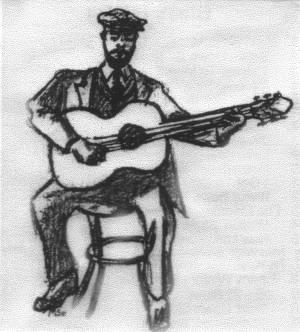
a self portrait (in my mind's eye)
But, before our quick scan of the developmental course of the Blues through giving attention to some of it's most notable artists, let me just add this personal note, as to the beauty of Blues music; Blues is a most expressive music, it is people telling of their own experiences, their story, in a very personal way. The form of the Blues is very simple, very basic, and because of this some count it as a low quality music, a common rural sound of and for the masses, etc. But it's in the simplicity of it's structure that we find it's wonderful beauty. There is certainly beauty in a Rossini overture or a Beethoven symphony . . . but these are very rigidly ordered pieces, every time a classical piece of music is played the attempt is to play it just precisely as it is written and arranged to be played - a Blues song gives you a very simple structure but every time that song is played it's a bit different, or dramatically different . . . the virtuoso artistry of each player makes every Blues standard his own, Blues calls-out for the genius of spontaneous creativity, or, improvisation.
While a great Classical work might begin with "For the Lord God omnipotent reigneth", a typical Blues song begins "I woke up this morning . . . ". Blues gives the player freedom to put the passionate telling of his own experience into the melody, he is singing about his own life ~
"I woke up this morning
My baby was gone
I woke up this morning
My baby was gone
I thought that she loved me
It seems that I'm wrong
Yes, I am wrong"
. . . and to our quick scan of the developmental course of the Blues through giving brief attention to some of it's most notable artists ~
~~~~~~~~~~~~~~~~~~~~~~~~~~~~~~~~~~~~~~~~~~~~~~~~~~~~~~~~~~
~ click on the name of each artist under their photo to hear a sample of their music ~
~~~~~~~~~~~~~~~~~~~~~~~~~~~~~~~~~~~~~~~~~~~~~~~~~~~~~~~~~~
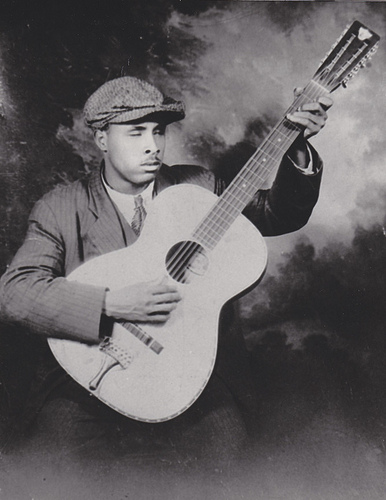
Blind Willie McTell
One of my very favorite musical artists, we have Blind Willie McTell recordings as early as 1927. To this day no one sounds like McTell. He played a 12 string guitar like a 6 string lead instrument, giving his music a haunting, lonesome tone unlike anyone else's music . . . and his voice was well suited for his unique guitar sound. McTell recorded a broad range of musical styles, doing standards (like, "Pal Of Mine"), Spirituals, Ragtime, and of course straight Blues. While not widely remembered, many of his songs are known to Rock fans; The Allman Brothers' classic live rendition of "Statesboro Blues", Eric Clapton's reworking of "Motherless Children Have A Hard Time", Johnny Winter's "Broke Down Engine Blues", etc, are all Blind Willie McTell songs . . . and Bob Dylan wrote a song titled "Blind Willie McTell" ~
"I travelled to East Texas Where many martyrs fell
And I know no one can sing the blues Like Blind Willie McTell"
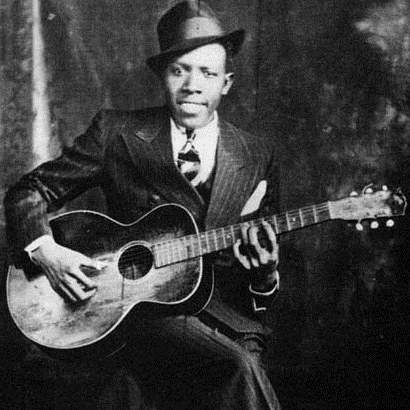
Robert Johnson
Robert Johnson's impact on popular music is astounding when you consider that he only recorded 29 songs in the mid/late 1930s. His singing, guitar playing, and song writing all make him one of the most celebrated of the original Bluesmen. Johnson also plays a significant role in the Blues lore that finds it's way into many old and newer Blues songs. The stories of Robert Johnson selling his soul to the devil, at the mystical 'crossoroads', for mastery of the guitar and fame as a Blues musician, have become a pillar of Blues folklore.
Heard frequently in films and as the big group number at the end of awards shows, Johnson's “Sweet Home Chicago” has become a familiar American classic.
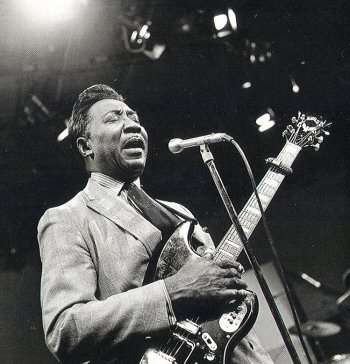
Muddy Waters
It is impossible to over estimate the significance that Muddy Waters has had on popular American music. Like many others, Muddy Waters (McKinley Morganfield) left the Delta region of Mississippi as a young man and headed for Chicago - like no one else, Muddy Waters became the father of Chicago style electric Blues. With Willie Dixon writing songs, and Little Walter on harmonica, Jimmy Rogers on guitar, and Otis Spann on piano as his band, Muddy Waters laid the foundation of the guitar-based Rock music that Rock & Roll would spawn.
Muddy Waters is one of the few Bluesmen who, early in his career you can hear Robert Johnson, Blind Lemon Jefferson, etc, in his authentic primitive acoustic Blues, and later you can hear the seeds that would become the sound of The Yardbirds, The Animals, The Kinks, etc, and later Cream and Led Zeppelin, etc, would burst onto the scene with. Few people have so influenced the music that came after them as Muddy Waters has.
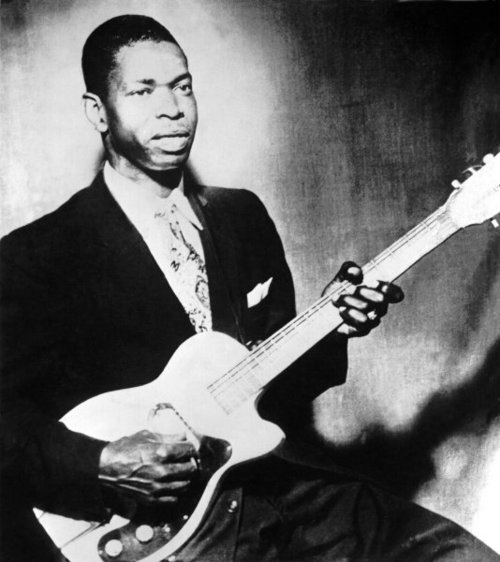
Elmore James
With his instantly recognizable and often imitated rocking guitar lick (probably first heard on his 1951 "Dust My Broom") Elmore James influenced generations of guitar players and prepared the way for Blues' offspring, Rock & Roll. James just about exclusively played slide guitar (also called bottleneck) . . . the 'slide guitar' style uses (usually) a section of metal pipe covering one finger that is used to slide over the strings, and with his heavy amplification and 'crunchy' tone, James introduced a gutsy sound that gave Blues a hard driving, almost percussion-like flavor. Early in his career Eric Clapton recorded a song simply titled "Tribute To Elmore".
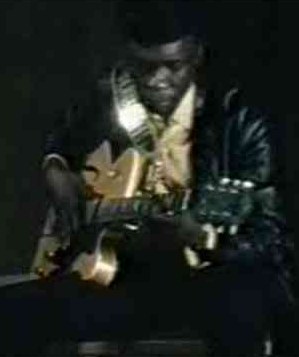
John Lee Hooker
The father of a very particular Blues genre, John Lee Hooker just about singlehandedly invented Boogie Guitar. Savoy Brown, ZZ Top, Foghat, George Thorogood and many others draw heavily from Hooker. With a deep and gravely voice, Hooker 'talked' the stanzas of his songs and then hollered-out the chorus with passion. Later in his career he played and recorded with many who counted him a living legend such as Carlos Santana, Van Morrison, and Bonnie Raitt
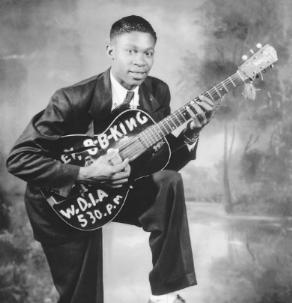
B. B. King
B. B. King was one of the many Bluesmen who left a cotton plantation in Mississippi to head north - but, rather than Chicago, King made his home in Memphis, and gave Memphis it's own Blues sound. Idolizing T-Bone Walker, who played a single string picking technique in front of an big band, King made a name for himself as B. B. King And His Orchestra . . . and he keeps a horn section is his smaller combos to this day. Tirelessly playing somewhere almost every night (over 250 nights a year), selling records to young and old alike, and winning Grammys, in his lifetime B. B. King has become an ambassador to the world for Blues music.
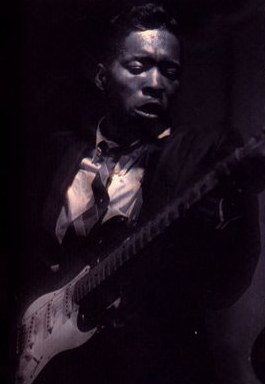
Buddy Guy
When Eric Clapton declares "Buddy Guy is by far and without a doubt the best guitar player alive", that kind of says it all. I have a video clip of Buddy Guy on stage in the 60s playing some scorching Blues guitar, and as the camera pans down to the audience you see Jimi Hendrix at a table upfront with his mouth hanging open just shaking his head. Buddy Guy started playing with Muddy Waters and Howlin' Wolf in the early days of Chicago Blues and still has Jeff Beck, Jimmy Page, and every other guitar player bowing in praise to him - Guy is the pinnacle of deep, big city, electric Blues.
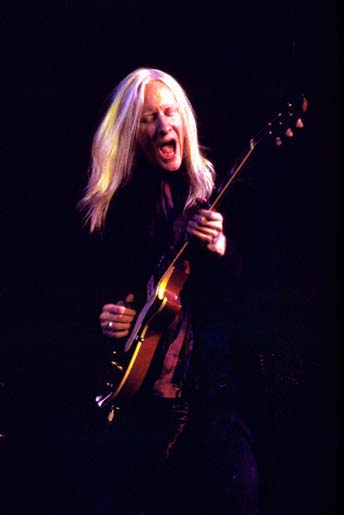
Johnny Winter
If you want a hands-on lesson in what the Blues is all about, get a copy of Johnny Winter's 1968's "Progressive Blues Experiment". This master Blues guitarist and powerful singer expertly includes just about every kind of Blues there is on this one album. From the early acoustic Blues of the Delta to Texas jumping Blues to Chicago's deep slow Blues, Winter beautifully puts his own authentic Blues energy into classics from Blind Willie McTell to B.B. King, recreating the pounding sound of Elmore James and putting his own passion into Willie Dixon tunes - with one song titled "Tribute To Muddy". At the height of the Rock era Johnny Winter could fill stadiums and Rock with the best - but he also almost singlehandedly kept the Blues alive for a whole generation, and he did it with a ferocity yet sweet fluidity on the strings that remains unrivaled.
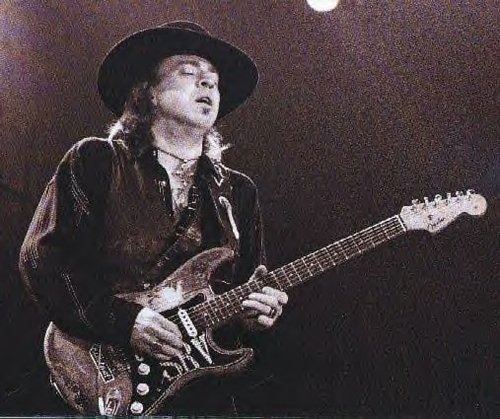
Stevie Ray Vaughan
In the early 1980s a wailing guitar came out of Texas that sent shivers up the backs of well accomplished players and sent a generation of young kids out to buy their first guitar. Stevie Ray Vaughan (with Johnny Winter's old bass player) reinvigorated the Blues scene. Many remember the first time they heard SRV play - he's that kind of phenomenon. After his sudden death (helicopter crash) in 1991, a CD was released of songs from various recording sessions that did not make the cut on the CDs they were recorded for - that collection of 'rejects' went platinum and went on to win a Grammy. Driving passion and astounding playing, SRV always kept his music firmly rooted in the Blues.
Eric Clapton
You cannot over emphasize the significant role Eric Clapton has played in the development of American music. Clapton is one of those few performers who, though widely counted as the best guitarist in the world, is both highly esteemed yet not recognized as he should be as one of the most influential artists in music history. There are those artists who you can count as 'before and after' artists - Bing Crosby, Benny Goodman, Elvis Presley, Bob Dylan, The Beatles, these musicians did not merely influence others, they changed everything . . . before their appearance things were one way, after them things were different. This is true of Eric Clapton as well.
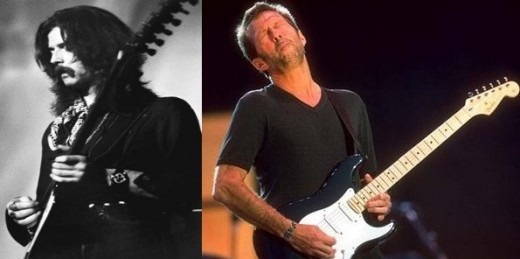
When Eric Clapton started playing in bands Rock & Roll was young enough that, while the guitar was certainly present in the music of Chuck Berry, Bo Diddley, Buddy Holly, and others, there was still a lot of piano and saxophone based Rock & Roll. When The Beatles appeared they set the course for bands as featuring the guitar as the dominant sound of Rock music. The Beatles made every young kid want to go our and buy a guitar - Eric Clapton made them want to learn how to play it.
Like so many of his generation, Clapton was enamored with American records surfacing throughout England. But while most were enthusiastic for the new Rock & Roll sounds of Eddie Cochran, Gene Vincent, and Little Richard, Clapton sought out Blues records by Muddy Waters, Howlin' Wolf, and Elmore James. Because the Rock & Roll music the British bands began to mimic came from the Blues, Clapton played with an authority and vitality no one else possessed . . . he understood the music because he knew where it came from. His unique mastery of the guitar and his solemn respect and love for Blues set Clapton up to redefine guitar playing and firmly establish Blues as the foundation of what was becoming Rock music . . . in bands like The Yardbirds, The Bluesbreakers, Cream, Blind Faith, Derek And The Dominos, and as a solo artist.
But, more about Eric Clapton when I publish a hub specifically on this most important artist.
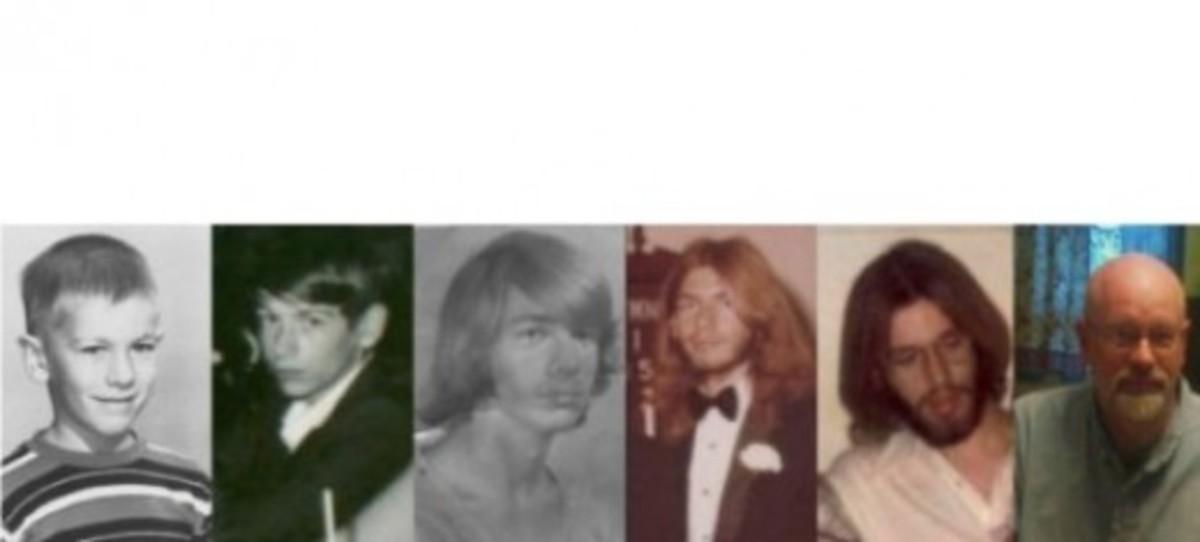
. . . also . . .
- Regular, Normal Christianity
I believe many folks are turned off, not by authentic Christianity, but by the too often ugly, discordant, and silly religion some have concocted and falsely labeled "Christianity" - The Christian & Private Study - A 'How To' Guide
You don't have to be a scholar to study Scripture effectively and you don't have to be intimidated because of unfamiliar terms and references - there are essential things you can know and aids to use that will make your own private study fruitful.
~~~~~~~~~~~~~~~~~~~~~~~~~~~~~~~~~~~~~~~~~~~~~
An Anti-self-help Self-help Series ~
"Why Do We hurt?"
"Believing You can Fly (I mean, accomplish & serve)"
"Recognizing The Reality Of The Circumstance Of Your Life"
"What Do You Believe In?"
Most Recent ~
"A Found Man"
"The Consequence Of Christmas"
"Contemplating Christmas"
"Is Believing In God A Ridiculous Thing?"
And a Hubnugget Award winner ~
"Regular, Normal Christianity ~ The Premise And Definitions"
MickeySr: Getting to Know Mickey Haist, Sr
please share your comments below ~




